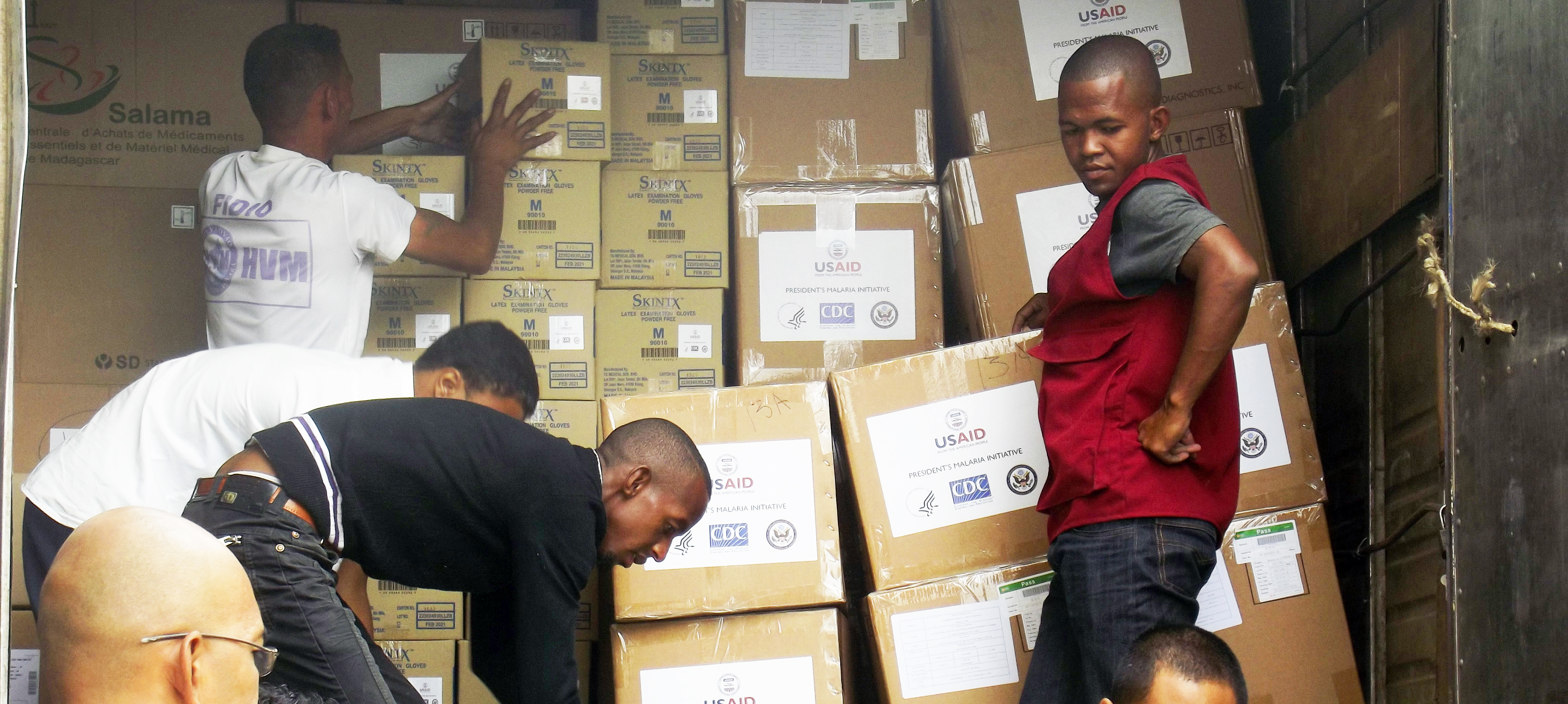
In early March 2017, Madagascar battled its most powerful storm in 13 years, which brought 145 mph winds and heavy rainfall. The cyclone affected more than 400,000 people – destroying homes, damaging health centers, and leaving behind large amounts of standing water – breeding grounds for malaria-carrying mosquitoes.
To prepare for an expected increase in malaria, the USAID Global Health Supply Chain Program-Procurement and Supply Management (GHSC-PSM) project delivered critical antimalarial commodities to 26 remote districts in the Southern region in April. This was particularly difficult, given that many roads were washed out and impassable. Without this emergency delivery, these districts would not receive additional antimalarial commodities until their normally scheduled replenishment in June.
The Madagascar team worked with the Malagasy central medical store (run by a nonprofit called SALAMA) to deliver commodities from the USAID President’s Malaria Initiative including: 1,101 packages of artemisinin-based combination therapy (ACT) for infants, 772 packages of ACT for young children, 1,127 packages of ACT for toddlers, 988 packages of ACT for adults, 8,338 rapid diagnostic tests, and 4,167 gloves. In total, the team delivered 5.3 tons of commodities which will allow for malaria testing and treatment of 75,000 children and 24,700 adults.
Malaria was the third-leading cause of death at the health-facility level in Madagascar in 2015, representing 10.13 percent of deaths at all ages and 18.6 percent of deaths for children under five.